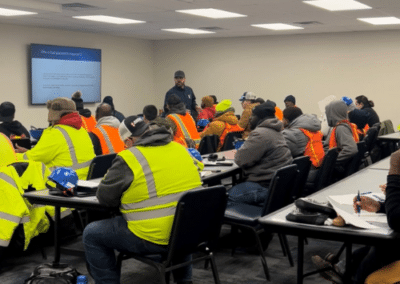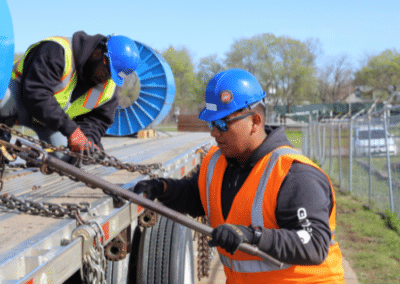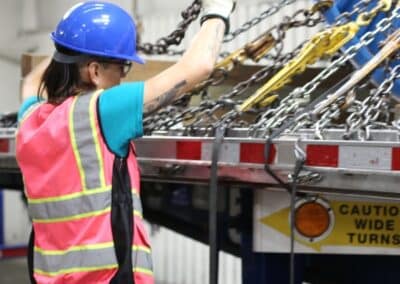
How Much do Flatbed Drivers Make?
Additional Pay Opportunities
Flatbed loads take a lot of work to tarp and secure. That’s why flatbed drivers make significantly more per year than the average truck driver. At Melton, we offer several opportunities on top of base pay to increase what you take home each week. You can earn an additional $0.16 CPM hauling an over-dimensional load, with no special endorsement required. If you have your Hazmat endorsement, you could earn an additional $0.06 CPM hauling a hazmat load. Melton also offers layover pay, extra stop pay, break down pay, holiday pay, and profit sharing after 3 years of safe driving!
Interested in getting a Hazmat endorsement as a Melton driver? Contact Safety or our Driver Services team. At 12 months of experience, Melton drivers qualify for reimbursement for their endorsement expenses. Here are some additional pay opportunities our drivers take advantage of.
Detention Pay – To get the best out of any haul, drivers need to stay within hours-of-service requirements as well as on-schedule. When a shipper causes unnecessary delays, it can create time conflicts with the next scheduled route in your load plan. At Melton, we know our drivers’ time is valuable, so, we offer an hourly detention pay. Learn more about how detention pay works here.
Tarp Pay – One of the main differentiators of flatbed trucking is tarping and load securement. Many flatbed companies offer additional pay for tarping loads. Melton recognizes that tarping is the hardest part of a flatbed driver’s job, so, we lead the industry in paying $100 for every tarped load. This pay is equal to an additional $0.06 CPM, which equates to an average of $10,000 a year on top of base pay. Learn more about how tarp pay works here.
Fuel Bonuses – As we all know, fuel is expensive. Imagine the fuel cost for a whole fleet? Trucking companies keep a close eye on Fuel costs, as they are typically the costliest expense. Fuel is the 2nd highest expense at Melton. To combat that, we offer our drivers an incentive to improve their MPG and idle time percentage. Not only does this incentive program help preserve fuel, but also allows us to put more money in our drivers’ pockets. With this program, drivers could earn up to $1,500 extra per quarter! Learn how you can conserve fuel and meet fuel bonus requirements here.
Tips to Save Money While Driving
Budgeting – Keep track of how you spend your money. Using a budgeting app or just a plain notebook can help you track how you spend your money and help you plan how to save and better spend your money.
Plan Well & be Prepared – Planning and being prepared can help prevent impulse purchases at truck stops and stores. Stocking up on groceries, personal items, a well-prepared first aid kit, and anything else you could potentially need on the road could hep you save time and money.




